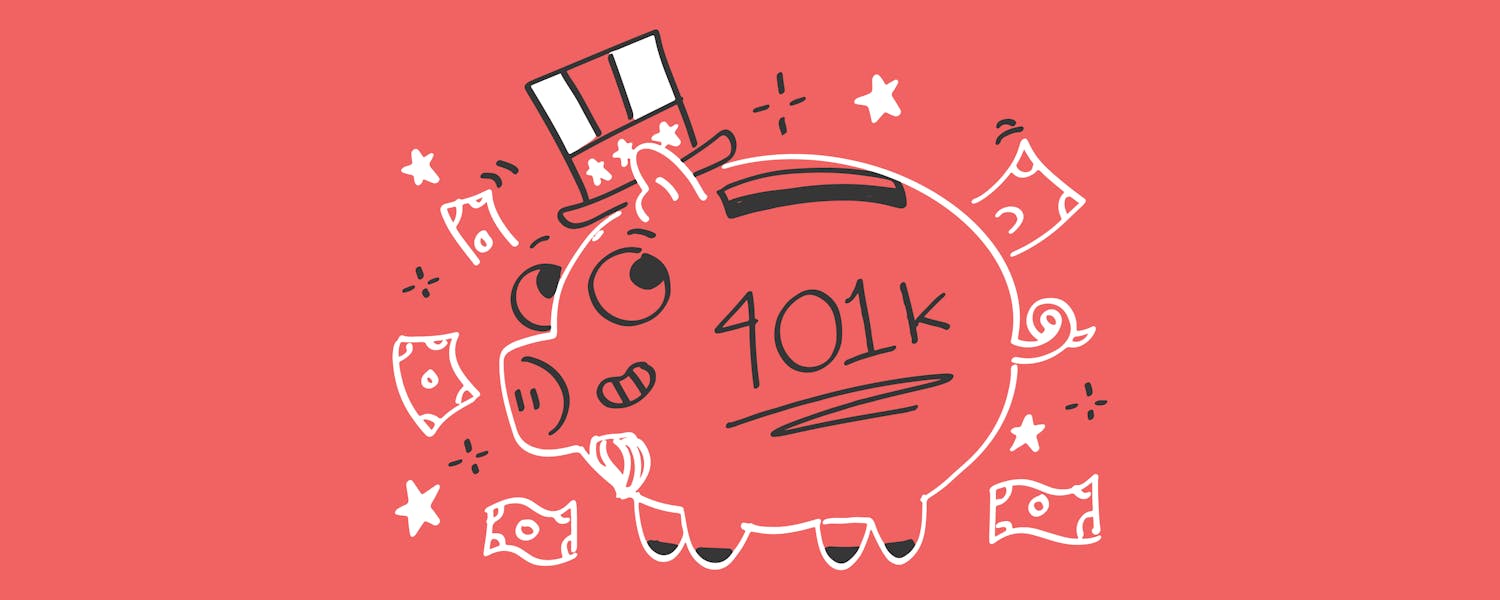Don’t stop thinking about tomorrow… learn now about your 401k
It’s no secret that inflation and rising costs of living are taking its toll on most of everyone’s savings. In fact, many millennials are struggling to pay their bills and save for retirement at the same time.
The good news is that there are several great financial benefits available if you keep your wits about yourself and do some research into what options are available. One such opportunity is a 401(k).
What exactly is a 401(k), and how can it help you? Keep reading to find out everything you need to know about this fantastic way to save for retirement.
What is a 401(k)?
You have probably heard of a 401(k) account before, but you may not know exactly what it is or may think it’s a complicated retirement vehicle that is hard to decipher. Luckily, it’s simple!
A 401k is an employer sponsored retirement account in which a pre-determined amount gets paid from each paycheck into an investment account. The earnings are generally distributed into index funds or mutual funds, and you can choose the allocations for them, this way, your savings will grow with compound interest over time.
But what about those pesky taxes? The best part about a 401(k) is the tax benefits you can gain from using the account! These tax benefits do change based on which type of 401(k) you have, traditional or ROTH, so read on to see the differences.
A 401k is an employer sponsored retirement account in which a pre-determined amount gets paid from each paycheck into an investment account.
Traditional 401(k)
If you would like to save money in taxes right now, a traditional 401(k) is the perfect choice for you! With a traditional 401(k), your contributions are made from your gross paycheck (before taxes are taken out). This allows your taxable income to decrease, and your contributions be deducted on your taxes, therefore, you’ll be paying less taxes in the present. The tax is, instead, deferred until retirement, where you will pay whatever the tax rate ends up being at that time.
"With a traditional 401(k), your contributions are made from your gross paycheck (before taxes are taken out)"
Roth 401(k)
Maybe you want to do your future self a favor, by eliminating taxes altogether during retirement. That is where the ROTH 401(k) comes in! With a Roth 401(k), your contributions are deducted from your net paycheck, or after taxes.
This will lower the amount of money that you take home in the present, and you cannot deduct them from your current tax year, but it allows you to pay absolutely zero taxes on your 401k during retirement! Roth 401(k)s are not always offered by employers, so check with your HR department to see if it is an option for you.
"With a Roth 401(k), your contributions are deducted from your net paycheck, or after taxes."
This method gives you the option to pay taxes on your retirement savings upfront instead of paying them at the withdrawal date.
With Roth IRA, taxpayers can create a strategy that takes tax rates into account to build a larger retirement fund.
Why is it called Roth IRA?
The name comes from Senator William Roth, who created the Taxpayer Relief Act of 1997 (at age 76).
Contribution Limits
If you are a high-income earner, the amazing tax benefits a 401(k) can offer may entice you to put large contributions into it. However, there is a limit to how much you can contribute each year. As of this year, the contribution limit is $20,500 between both types of accounts. Keep that in mind when determining what amount to contribute each paycheck.
Bottom Line – Which 401(k) is Right for you?
Both types of 401(k)s can be contributed to at the same time! However, if you prefer to choose one or the other, there are a couple of things to keep in mind.
If taxes are at a historically low amount, it is best to take advantage of preparing for future tax rates by contributing to a Roth 401(k).
If taxes are higher than normal, or if you need to save more money in the present, a traditional 401(k) is perfect for you.
Whichever plan you pick, you will start to build up a pretty good nest egg, and your future self will thank you!
We recommend you: The secrets they don't teach in school about finance





